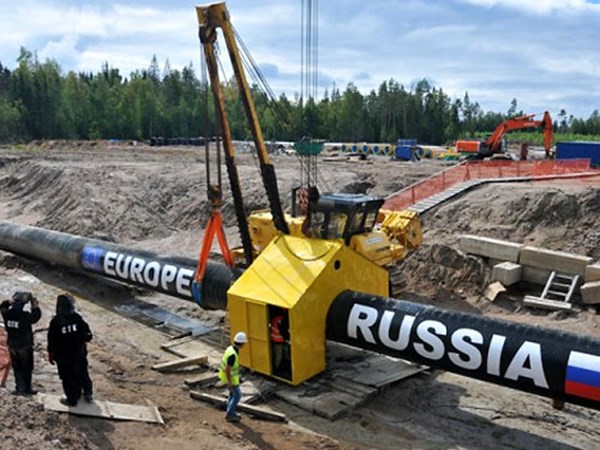European gas prices soar as Germany refuses to certify Nord Stream 2
The European gas market is facing a threat of a new price shock after Germany refused to certify the Nord Stream-2 pipeline and demanded that the operator re-start the 4-month process and relocate assets and personnel related to the German section of the pipeline to Germany.
Germany's Federal Network Agency (Bundesnetzagentur) announced it was suspending certification of the Nord Stream 2 gas pipeline.
The regulator of the German gas market said it believes that the operator of the pipeline, Nord Stream 2 AG, which is a 100% subsidiary of the Russian gas conglomerate Gazprom, cannot be recognized as an independent operator, as required by the European law.
To comply with the European gas directive, the company must restructure and establish a German subsidiary, which will own a section of the pipeline running in Germany, said Germany’s Federal Network Agency in a press release.
To this end, Nord Stream 2 AG, headquartered in the Swiss city of Zug, must transfer fixed capital, assets and human resources to the German subsidiary in accordance with the German Energy Industry Act.
After that, the company can re-submit the full package of documents, and the certification procedure will resume. The certification process will take 4 months that will be counted from the date of resubmission.
The European Commission, the Ministry of the German Federal Ministry of Economics and Technology and the parties involved in the certification were notified in advance about the suspension, the Bundesnetzagentur reports.
On Tuesday gas futures on the London ICE exchange jumped to $ 1,053 - a maximum in almost a month- on the news that the Federal Network Agency of Germany suspended the process of recognizing Nord Stream 2 AG as an independent operator in accordance with the EU norms.
At 13.44 GMT, December gas contracts on the Dutch TTF hub are rising in price by 10% and are traded at $ 1,033 per thousand cubic meters - $ 200 more expensive than a week ago.
Gas with delivery in January is traded at $ 1,035 per thousand cubic meters, and March contracts - at $ 927.9. The market is pricing in a significant reduction in prices - up to $ 500 and below - only after the end of the heating season (April-May).
Earlier, the Russian gas giant Gazprom refused once again to book additional gas transit capacity through Ukraine, as well as through Poland. Despite President Vladimir Putin's instructions to fill empty storage facilities in Germany and Austria with gas, supplies from Russia remain below normal for this time of year, Goldman Sachs notes.
"Unless there is an increase in Russian gas supplies, cold weather in early winter will lead to a longer period of high gas and electricity prices," warns Carlos Torres Díaz, vice president and head of gas and electricity market research at Rystad Energy.
According to him, Europe may not see a significant increase in supplies from Russia until the long-suffering Nord Stream 2 pipeline is approved and begins deliveries.
